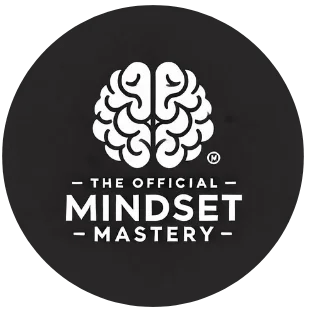Positive psychology promotes positive emotions, strengths, and actions to boost resilience and mental health. Avoiding negative feelings and knowing how positivity can help one recover from failures are both important. Mental resilience is the ability to overcome stress, misfortune, and unexpected events. Integrating positive psychology ideas into daily life helps boost mental resilience and confidence in facing challenges. Martin Seligman, a pioneer in positive psychology, found that people who cultivate happy emotions are more resilient, healthier, and more successful.
Building Resilience with Optimism
Positive psychology relies on optimism to promote mental resilience. Optimistic people see problems as temporary and solvable, which gives them the confidence to persevere. Pessimistic people see problems as permanent or intractable, which drains their vitality and resilience. A Journal of Personality and Social Psychology study indicated that optimistic people recover faster from setbacks and have higher emotional well-being. Instead of obsessing on issues, optimism involves focusing on solutions and growth prospects.
For Mental Strength, Practice Gratitude
Another important positive psychology approach for mental resilience is gratitude. Even in hard circumstances, thankfulness entails acknowledging the good things in life. The Greater Good Science Center at the University of California, Berkeley found that gratitude reduces stress, anxiety, and depression and builds mental resilience. Gratitude helps balance and improve perspective by focusing on the good things in life. Keeping a gratitude notebook or thinking on three things to be grateful for daily might enhance mental strength and resilience.
Building Resilience with Strengths
Positive psychology encourages people to use their talents to overcome obstacles and create resilience. Recognizing and using abilities like creativity, perseverance, and problem-solving can empower people to meet life’s problems. VIA Institute on Character study shows that using character traits in daily life boosts mental health and resilience. When things get bad, someone with perseverance may focus on pushing through. Positive psychology emphasizes that everyone has unique abilities that can help them overcome adversity.
Positive Relationships Influence Resilience
Positive connections also boost mental resilience, according to positive psychology. Strong social relationships offer emotional support, belonging, and stress relief. The Harvard T.H. Chan School of Public Health found that those with strong social networks are more robust to stress and had less mental and physical health decline during stressful times. By providing emotional support, encouragement, and practical help, positive connections help overcome life’s problems. Developing good, supportive connections is essential to resilience.
Positive Thinking and Self-Talk for Resilience
Positive self-talk is essential to mental resilience and positive psychology. How people say to themselves in tough times can build or lower resilience. Self-talk like “I can’t do this” or “I’m a failure” can decrease mental power and make problems appear harder. However, optimistic self-talk like “I can handle this” or “I’ll find a way,” boosts resilience and confidence. Positive self-talk reduces stress and improves coping, according to Mayo Clinic studies. Changing negative ideas to positive ones can boost mental resilience and problem-solving.
Purpose and Meaning in Resilience
Finding significance in life is another important part of positive psychology that builds resilience. A sense of purpose motivates people to overcome obstacles and persevere. According to existential psychologist Viktor Frankl, people who find purpose in their trials are more resilient and can overcome misfortune. This purpose guides people through challenging situations with hope and determination. A defined purpose, whether it’s a personal mission, career objectives, or family commitment, can give you emotional fortitude to weather life’s storms.
Building Resilience with Growth Mindset
Positive psychology encourages growth mentality for resilience. Carol Dweck pioneered the growth mindset, which holds that intelligence and abilities can be developed through effort and learning. Growth-minded people see setbacks as learning opportunities rather than insurmountable roadblocks. This mindset promotes resilience by encouraging people to learn from their mistakes, accept challenges, and persevere. According to Psychological Science, those with a growth mentality are more likely to overcome obstacles and succeed. Developing a growth mindset can boost resilience and help you overcome obstacles.
Using Self-Compassion to Build Resilience
Positive psychology emphasizes self-compassion, or kindness and understanding during stressful situations. Self-compassion encourages people to accept their flaws and tackle issues with self-care rather than being harsh. Dr. Kristin Neff, a renowned self-compassion researcher, says self-compassion makes people more resilient to stress, anxiety, and despair. Self-compassion promotes emotional stability and reduces self-judgment, speeding recovery from setbacks. Self-compassion helps people create mental resilience to handle life’s ups and downs.
References
M. E. P. Seligman (2011). Flourish: A New Happiness and Well-being Vision. New York: Free Press.
C. S. Carver, M. F. Scheier (2014). Positivity and Mental Health: Clinical Implications of Positive Psychology. Personality and Social Psychology Journal.
Greater Good Science Center. (2020). Gratitude Science. California University, Berkeley. Source: Greater Good Science Center.
VIA Character Institute (2018). Effectiveness of Character Strengths in Daily Life. retrieved from VIA Institute.
Chan School of Public Health, Harvard (2017). Social relationships and health and resilience. Source: Harvard Public Health.
Mayo Clinic (2019). Stress Management with Positive Self-Talk. Taken from Mayo Clinic.
Vincent E. Frankl (2006). Man’s Meaning Search. Beacon Press, Boston.
SC Dweck (2007). Mindset: New Success Psychology. NY: Ballantine Books.
KD Neff (2011). Kindness to Yourself Is Proven. New York: HarperCollins.





